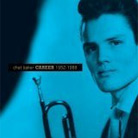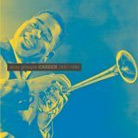August 2005
The Dizzy Gillespie set opens with tracks culled from singles from the '40s that he recorded for many labels and includes important collaborations with Charlie Parker. On these tracks, we hear both the formation of bebop and the maturing of Afro-Cuban jazz. As we move into the '50s and beyond there are selections from many albums, including two from the seminal Jazz at Massey Hall. This music is as alive and demanding of attention now as it was more than 50 years ago. The essay by Neil Tesser will bring you up to speed not only on Gillespie’s career but the history of jazz as well. The Chet Baker set doesn’t follow a strict chronology but gives one disc each to Baker’s careers as trumpeter and singer. There is both the expected, such as instrumental and vocal versions of "My Funny Valentine," and the unexpected, like a cover of Elvis Costello’s "Almost Blue." Baker’s romanticism, both in playing and singing, provides an interesting contrast to Gillespie’s music, which appears aggressive by contrast. The sound on this set is better than the Gillespie, but Ernest Hardy’s essay is not as successful as Tesser’s. GO BACK TO: |
 Chet Baker - Career
(1952-1988)
Chet Baker - Career
(1952-1988) Dizzy Gillespie - Career
(1937-1992)
Dizzy Gillespie - Career
(1937-1992)